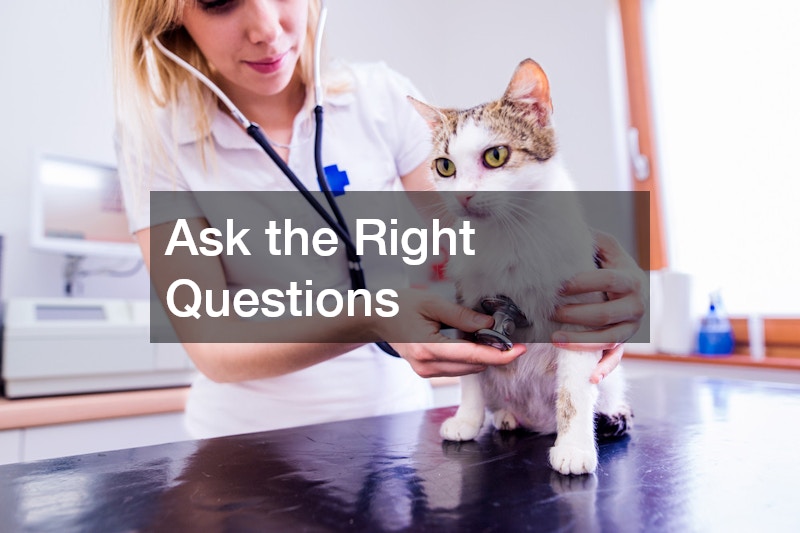Properly caring for your pet’s health is an essential responsibility that every pet owner should take seriously. Just as humans require routine check-ups and a balanced diet for optimal health, pets also deserve a structured approach to their well-being. Understanding pet health solutions and implementing preventative measures can lead to longer, happier lives for your furry friends and can help you mitigate health issues before they escalate.
When you are proactive about your pet’s health, it helps reduce the stress associated with emergencies and unexpected health crises. Think of pet health as forming the backbone of your pet care routine; this includes regular vet visits, maintaining good nutrition, and being observant of any behavioral changes. Prioritizing your pet’s health means you can catch potential issues early and foster a more fulfilling life for both you and your pet.
In this article, we will explore various strategies and observations that pet owners can adopt to ensure they provide the best possible health solutions. We’ll cover everything from recognizing normal behaviors to knowing when to seek help from a veterinarian. By taking these steps, pet owners can contribute positively to their companion’s health and overall quality of life.
Know Your Pet’s Routine

One of the simplest yet most effective pet health solutions is knowing your pet’s daily routine. Observing their typical habits allows you to ascertain what is normal and what may be a cause for concern. For instance, if your dog usually greets you enthusiastically at the door but suddenly stops, it could signal an underlying health issue that may require attention.
Monitoring your pet’s eating habits, energy levels, and bathroom breaks can provide critical insights into their health. Sudden changes in their routine can indicate problems ranging from minor ailments to serious health issues, requiring the expertise of an emergency vet. By staying attuned to these nuances, pet owners can make informed decisions regarding care and seek help when necessary.
Documentation can enhance your observations; keeping track of your pet’s daily activities can help you notice patterns over time. For example, if your pet usually enjoys walks but begins to resist, this can be a significant indicator that something is amiss. Recognizing these changes early on is a key aspect of effective pet health and can lead to timely veterinary intervention.
Establish a Consistent Appointment Schedule
Regular veterinary check-ups form a foundational component of pet health solutions. Establishing a consistent appointment schedule with your local animal hospital enables you to stay informed about your pet’s health and allows for timely vaccinations and screenings. Just like humans, pets need routine care to prevent health issues before they develop.
During these appointments, veterinarians can perform wellness exams that detect early signs of illness, ensuring that any necessary treatments are initiated as soon as possible. Most local veterinary clinics have protocols for vaccinations, dental care, and parasite prevention, which are key components in maintaining your pet’s health. Regular visits build a relationship with your vet, who understands your pet’s unique needs over time.
The frequency of veterinary visits may vary by species, age, and specific health needs. Kittens and puppies typically require more frequent visits, while older pets may need them to check for late-life health issues such as arthritis or dental problems. Consistent appointments allow pet owners to stay proactive rather than reactive regarding pet health.
Seek Professional Advice
Trusting veterinary experts is paramount to ensuring the health of your pet. Whether consulting your local veterinarian about routine health care or asking for urgent care veterinarian services in emergencies, professional advice can make all the difference. These experts have the knowledge and tools to properly diagnose and treat your pet’s ailments, mitigating risks associated with inaccurate assessments.
It is essential to be open to professional recommendations regarding preventative care, diet, and treatment options. The value of professional opinions comes not only from their training but also from their experience with countless cases similar to your own. Engaging with professionals ensures that decision-making is informed and grounded in knowledge rather than assumption or outdated information.
Incorporating professional advice into your pet care routine elevates your pet health solutions to a more comprehensive level. It’s important to communicate openly with veterinarians about any concerns or discrepancies you’ve observed in your pet’s behavior, as they can guide you on the next steps. Ultimately, working with trusted experts allows pet owners to rest easy knowing they’re doing what’s best for their companions.
Keep Track of the Details

Understanding your pet’s condition is crucial to effective communication with veterinarians. Keeping detailed records about your pet’s health, such as symptoms, medication, and dietary changes, can provide invaluable insights during vet appointments. This information can significantly enhance diagnosis and treatment strategies, contributing to better pet health overall.
Inquiring about your pet’s health history and keeping it updated can help your veterinarian identify any recurring issues, such as pet skin problems or chronic illnesses. Familiarizing yourself with the signs and symptoms your pet demonstrates can offer clues on what might be wrong. Being equipped with these details also enables you to provide accurate information to emergency vet services, should the need arise.
Utilizing technology, such as pet health tracking apps, can simplify this process. These tools can help organize and store vital health information and remind you of upcoming appointments or medication schedules. Essentially, understanding and tracking the intricacies of your pet’s health empowers you to facilitate their well-being more effectively.
Offer High Quality Food
Providing your pet with a diet rich in high-quality ingredients tailored to their specific needs is a vital part of pet health solutions. A balanced diet not only supports overall wellness but also helps prevent common health issues associated with poor nutrition. Veterinarians often advise owners on the best food options that meet their pet’s age, breed, and health condition requirements.
Moreover, high-quality food can combat obesity, which is a growing epidemic among pets. By providing nutritionally balanced meals that include the right mix of protein, carbohydrates, and fats, your pet can maintain a healthy weight. Regular consultations at a local veterinary clinic can help you stay updated on any dietary needs your pet may develop over time.
Investing in premium pet food may initially seem costly, but it pays off in the long run through fewer trips to the vet and improved overall health and energy levels. Additionally, many local animal hospitals offer nutritional counseling services, pinpointing suitable food brands and dietary supplements. Focusing on nutrition is fundamental when considering long-term pet health.
See a Specialist
Sometimes, your pet may require care that extends beyond the capabilities of a regular veterinarian. In such cases, visiting a pet health clinic or a specialist becomes essential. These specialists have concentrated knowledge in specific areas, such as dermatology, cardiology, or orthopedics, allowing for more effective treatment of complicated conditions.
For example, if your pet is struggling with persistent skin issues that your regular vet cannot resolve, a veterinary dermatologist may offer targeted therapies or advanced diagnostic tools to address the problem. This level of expertise can make all the difference in creating an effective treatment plan. By recognizing when it’s time to seek specialized care, pet owners can significantly enhance their options for pet health solutions.
Specialists can also provide valuable insights into emerging concerns or treatments that may not be on your vet’s radar. Discussing the possibility of receiving referrals with your veterinarian can help ensure that your pet gets the comprehensive care they deserve. Taking advantage of specialized veterinary services can lead you and your pet to more effective and timely solutions for complex health issues.
Ask the Right Questions

Asking the right questions during your veterinary appointments is a critical aspect of ensuring effective pet health solutions. Whether you’re inquiring about vaccination schedules, treatment options, or follow-up care, clear communication can lead to better health outcomes. Don’t hesitate to ask for clarification or further explanation of medical terms, as understanding the details is important for informed decision-making.
When discussing your pet’s specific condition, asking about alternative treatment options or potential side effects can empower you as a pet owner. Engaging with your veterinarian also builds a collaborative approach towards your pet’s health management. The more informed you are, the better equipped you will be to advocate for your pet during their care process.
Listening attentively to the veterinarian’s responses is equally important. They can often offer insights based on their experience that can impact your pet’s overall health and long-term care strategies. Questions are not just about finding solutions but also about cultivating a deeper understanding and partnership in your pet’s healthcare journey.
Vaccinate Your Pet
Vaccination is a cornerstone of pet health solutions and is essential for preventing many serious diseases. Adhering to the recommended vaccination schedule provided by your local veterinarian protects not only your pet but also other animals in the community. Vaccines have been shown to be an effective way to maintain overall health and prevent outbreaks of contagious diseases.
Common vaccinations include those for rabies, distemper, and parvovirus, among others, depending on your pet’s age, lifestyle, and location. Regular vet visits help keep you informed about which vaccinations your pet needs and when it’s time for boosters. The preventive measures offered through vaccinations help ensure you won’t face expensive veterinary bills for preventable diseases in the future.
Additionally, by keeping your pet vaccinated, you are playing an active role in fostering a healthier community. Many local veterinary clinics host vaccination clinics with reduced fees to help encourage wellness within pet populations. Making vaccinations a priority in your pet’s health is a responsible action every pet owner should take.
Get a Second Opinion
Receiving a second opinion can be beneficial when it comes to any significant health diagnosis or treatment recommendations for your pet. This is especially true if a suggested course of action seems unclear or concerning. Seeking consultation from another veterinary expert can confirm or provide alternative insights into your pet’s health situation, adding clarity to your decision-making.
Moreover, getting a second opinion can also serve to ease your concerns, ensuring that the recommended path aligns with your expectations and understanding of your pet’s needs. When it comes to more serious considerations, such as pet surgery, discussing options with multiple professionals can help determine the best course of action. The collaborative nature of veterinary care only strengthens pet health solutions.
It’s important to address your concerns with your primary veterinarian before seeking another opinion, as this can foster a more open dialogue and maintain trust in your relationship. Additionally, many veterinarians understand the need for second opinions and often encourage owners to seek them for their peace of mind. Remember, informed decisions lead to better health outcomes for your furry friends.
Pursue Help Quickly

When it comes to your pet’s health, being able to recognize emergencies is paramount. If your pet is experiencing distress or exhibiting concerning symptoms, it is critical to seek help quickly from an urgent care veterinarian. Faster response times can save lives and prevent complications in various scenarios such as poisoning, severe injuries, or sudden illness.
Most local animal hospitals provide emergency vet services, so having the contact information readily available is advisable for all pet owners. Knowing the signs of distress, such as difficulty breathing, excessive vomiting, or severe lethargy, can empower you to act decisively. Time is often of the essence in preventing further complications, particularly with certain acute conditions.
Remember, your awareness and prompt decisions can make a life-changing difference. Understanding when your pet needs immediate attention helps you effectively utilize available pet health solutions. The sooner you act, the better the potential outcome, making a proactive approach critical in emergencies.
Pet health encompasses a myriad of responsibilities and proactive measures that every pet owner can adopt. Understanding your pet’s routine, scheduling consistent appointments, and seeking professional advice are foundational steps that contribute to their well-being. Additional strategies, such as tracking health details, providing high-quality nutrition, and seeking specialist guidance, further solidify your role in their health journey.
Staying informed and engaged—with an emphasis on vaccinations and understanding urgent situations—ensures a collaborative approach to your pet’s care. Moreover, asking the right questions and being open to second opinions fosters a transparent relationship with your veterinary team. With these measures in place, you set the stage for a healthy, happy life for your beloved pet.
Always remember that the more proactive you are about pet health solutions, the better equipped you will be to address issues that arise. Your pet relies on you for their health, happiness, and quality of life, and taking these responsibilities seriously can truly make a difference. By implementing these practices, you not only ensure their well-being but also enhance the bond you share with your four-legged family member.
